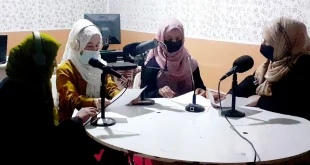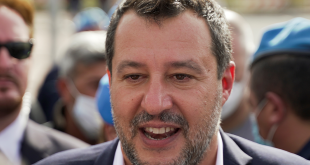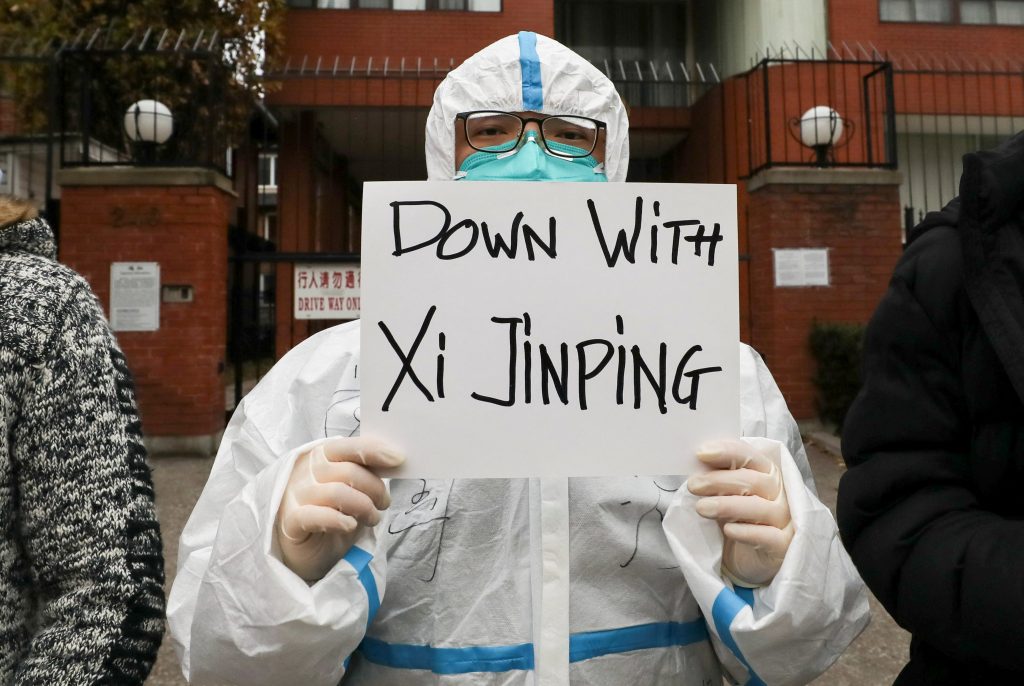
Beijing is considering easing back its harsh COVID policies after protests swept the nation when China reinstated some of the world’s most restrictive protocols, reports said Thursday.
Changes are expected to be announced in the coming days to quarantine rules and testing guidelines despite nationwide record highs in COVID cases, according to Reuters.
A top official reportedly claimed the virus was weakening, and local officials have begun to ease back restrictions in some areas, though mention of the protests have not been listed as a factor in the policy changes.
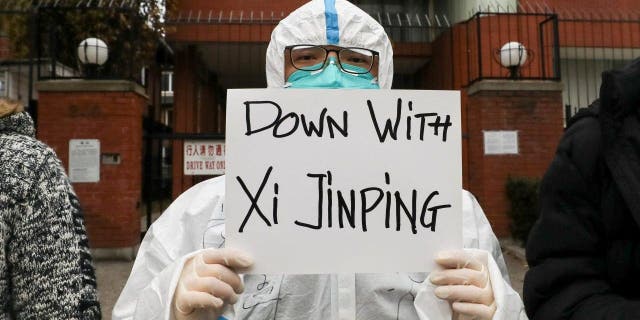
A person holds a banner during a protest in solidarity over the COVID-19 restrictions in mainland China, during a commemoration of the victims of a fire in Urumqi outside the Chinese consulate in Toronto Nov. 29, 2022.
(REUTERS/Chris Helgren)
CHINA DEPLOYS RIOT POLICE IN HAZMAT SUITS TO CRACK DOWN ON COVID PROTESTS
Sources told the publication that Beijing is considering making changes to its mass testing policy, as well as allowing those who have contracted the disease, or were in close contact with someone who tested positive, to quarantine at home under certain conditions.
Pregnant women, elderly and people with underlying illnesses will reportedly qualify to isolate at home.
China’s strict policies has forced entire communities to enter into lockdown if even one person tested positive, while others were forced to quarantine in state-provided facilities according to reports.
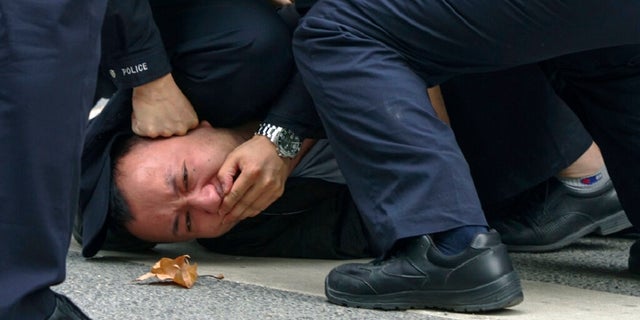
Policemen pin down and arrest a protester during a protest on a street in Shanghai. Authorities eased antivirus rules in scattered areas but affirmed China’s severe “zero-COVID” strategy Monday after crowds demanded President Xi Jinping resign during protests against controls that confine millions of people to their homes.
(AP)
CHINA SAYS IT WILL CRACK DOWN ON ‘HOSTILE FORCES’ AS ANTI-LOCKDOWN PROTESTS CONTINUE
Beijing faced renewed condemnation over its policies earlier this year when a bus transporting 47 people from the city of Guiyang in southern China rolled and killed 27 of the passengers aboard while transporting them to a quarantine facility.
The consideration to ease COVID restrictions comes just one day after officials in the city Guangzhou in Hong Kong reversed lockdowns and reopened schools, restaurants and businesses in response to violent protests Tuesday.
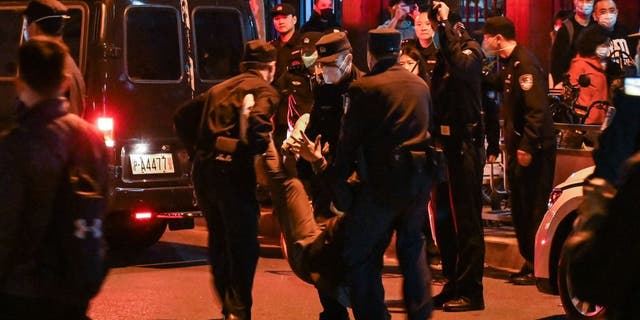
A man is arrested while people gathering on a street in Shanghai on November 27, 2022, where protests against China’s “zero-COVID” policy took place the night before following a deadly fire in Urumqi, the capital of the Xinjiang region.
(HECTOR RETAMAL/AFP via Getty Images)
CLICK HERE TO GET THE FOX NEWS APP
The city of Chongqing in central China announced similar changes Wednesday and said they will allow certain people to quarantine at home.
Officials in the city of Zhengzhou in eastern China, home to a large Foxconn factory that makes Apple iPhones, reportedly responded to worker unrest this week over its restrictive policies and said an “orderly” return to work would be allowed and reopened supermarkets, gyms and restaurants.

 Latest Breaking News Online News Portal
Latest Breaking News Online News Portal


